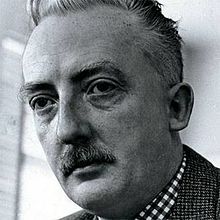Seán Ó Riada
| Seán Ó Riada | |
|---|---|
 |
|
| Background information | |
| Birth name | John Reidy |
| Born | 1 August 1931 |
| Origin | Cork, Irish Free State |
| Died | 3 October 1971 (aged 40) London, United Kingdom |
| Occupation(s) | Composer |
Seán Ó Riada ([ˈʃaːnˠ oː ɾʲiəd̪ˠə]; born John Reidy) (1 August 1931 – 3 October 1971), was an Irish composer and arranger of Irish traditional music. Through his incorporation of modern and traditional techniques he became the single most influential figure in the revival of Irish traditional music during the 1960s.
Ó Riada's career began as a music director at Radio Éireann from 1954, after which he worked at the Abbey Theatre from 1955 to 1962. He lectured in music at University College Cork from 1963 until his death in 1971. He became a household name in Ireland through his participation in Ceoltóirí Chualann, compositions, writings and broadcasts. His best-known pieces in the classical tradition include Nomos No. 1: Hercules Dux Ferrariae (1957), but he became particularly famous for his film scores Mise Éire (1959) and Saoirse? (1960). He left a lasting influence as founder and director of the ensemble Ceoltóirí Chualann (from 1961).
Ó Riada died in 1971, two months after he turned 40 years.
Ó Riada was born John Reidy in Cork City, he attended St Finbarr's College, Farranferris and whilst he was there he received musical education from Aloys Fleischmann (Senior). He moved to St Munchin's College in Limerick where he completed his Leaving Certificate in 1948.
He played violin, piano and organ, and studied Greek and Latin classics at University College Cork, with Aloys Fleischmann (Junior) and graduated in 1952. While at College, Ó Riada was the auditor of the UCC Philosophical Society. That year he became assistant director for Radio Éireann. He married Ruth Coughlan in 1953.
...
Wikipedia
